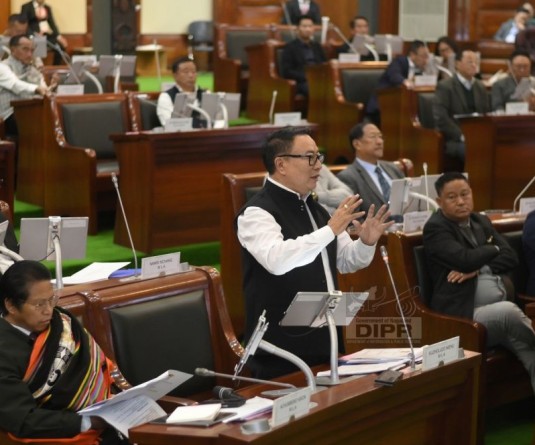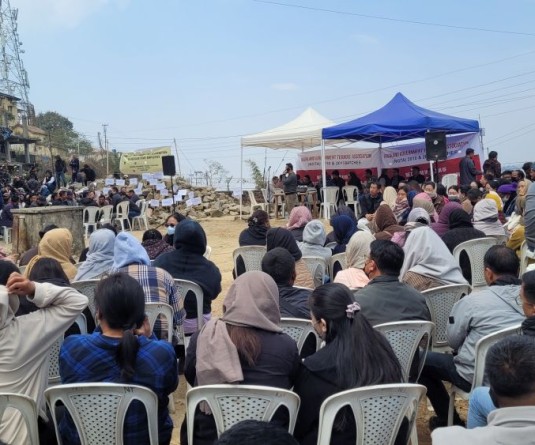
Warns on dangers of fast food consumption
Kohima, March 14 (DIPR): The Nagaland Board of School Education (NBSE) has notified all schools on the dangers of consumption of fast food and advised them to sensitise and orient students about healthy eating habits, as part of compulsory co-curricular activities and also under Health and Physical Education Subject.
The NBSE said that consumption of foods high in fat, salt and sugar (HFSS), popularly known as junk food, is associated with increased risk of type 2 diabetes, hypertension, dyslipidemia, chronic inflammation and hyperinsulinemia with a risk of cardiovascular diseases in later life.
It also informed that the Ministry of Women and Child Development (MWCD) constituted a working group which submitted its report on addressing consumption of foods High in Fat, Salt and Sugar (HFSS) and promotion of healthy snacks in schools of India.
The NBSE advised schools in Nagaland to implement the report’s recommendations. Specifically, it asked schools to take measures to ensure that the canteens do not cater any HFSS food such as chips, fried foods, soft drinks etc and also control the sale of HFSS foods within a radius of 200 meters from the school compound.
Schools should have a School Canteen Management Committee comprising of 7-10 members, including the teachers, parents, students and School Canteen operators responsible for providing safe food to the school children, it advised. The major functions of the School Canteen Management Committee are as follows:
• To conduct timely checking of the quality of raw materials and ingredients and decide the lunch items to be prepared in the school canteen/kitchen.
• To see that the food in schools are up to standard and meet the guidelines as outlined by the Food Safety and Standards Authority of India (FSSAI).
• To avail the expertise of external resources such as nutritionists, health specialist etc. and to develop awareness materials on information regarding hygiene, physical fitness and nutrition.
• To display the contact numbers of Doctors/Medical Officers who can be contacted in case of an emergency on notice boards, labs, canteen, etc. and other important places.
The NBSE meanwhile asked schools to organize awareness programs like celebration of Nutrition Week (September 1 to 7) etc for nutritious food and avoidance of HFSS foods. It also suggested the following additional activities for promoting healthier eating habits:
•Education on quality nutrition and integration of physical activities during the school hours.
•Teaching students about the importance of a healthy active lifestyle and following healthy eating habits.
•Creating a set of activities such as debate on food safety, competitions for senior students on topics related to hygiene and sanitation, advantages of healthy lifestyle options etc.
•Making children aware about obesity, HFSS foods and importance of physical activity. Further, schools have been asked to undertake Community Outreach Programme to disseminate the messages related to health to the community members and to get their support by organizing interactions between school students and neighbourhood communities.
The report also proposed regular monitoring of the Height, weight and Body Mass Index (BMI) for all students and based on their trajectory provision of individualized counselling. Other measures recommended included inspection of lunch boxes to minimize the consumption of unhealthy foods; and promotion of nutrition and health awareness through Co-Scholastic/Co-Curricular activities classes.






